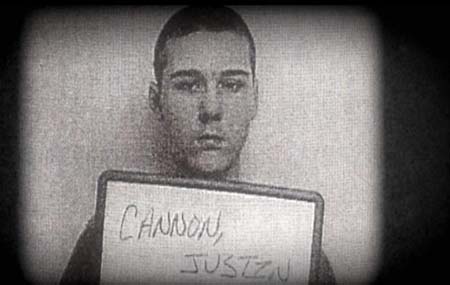 Sometimes there’s no feel-good ending when the underdog stands up to the powers that be, no matter how terrible the injustice. In 2007, former child inmate Joseph Galloway became the face of all the victims at the Texas Youth Commission: The terrible beatings and sexual abuse he suffered at the hands of staff and inmates at the Giddings State School made headlines, and his case turned out to be the first few rounds in a grueling fight to fix a broken state agency. After the police investigations started, big promises were made by lawmakers about fixing TYC and making amends to the thousands of children who had passed through its locked gates.
Sometimes there’s no feel-good ending when the underdog stands up to the powers that be, no matter how terrible the injustice. In 2007, former child inmate Joseph Galloway became the face of all the victims at the Texas Youth Commission: The terrible beatings and sexual abuse he suffered at the hands of staff and inmates at the Giddings State School made headlines, and his case turned out to be the first few rounds in a grueling fight to fix a broken state agency. After the police investigations started, big promises were made by lawmakers about fixing TYC and making amends to the thousands of children who had passed through its locked gates.
Emily Pyle, director of Burned: Life In and Out of Texas Youth Prisons, knew about the endemic problems at TYC before most Texans: As a reporter for The Texas Observer, in 2006 she went to Edinburg to report on the riot at Evins Regional Juvenile Center. When she asked staff about the brutal tactics used against its students, she said, “Nobody was denying that the kids were hurt so much as they were saying that this was the only way they could maintain control.” Instead of a bunch of tough, street-smart criminals being rehabilitated in a state-run school environment, she found an overstretched juvenile prison system where one student in three had a diagnosed mental illness, and violence and abuse were rife. Pyle, a former Chronicle contributor, said, “You go into journalism with the idea that it’s about comforting the afflicted and afflicting the comfortable, and if you have those kinds of ideals, it’s hard to imagine less of a population that has less of a voice.”
Pyle’s debut documentary tracks two survivors of TYC – Galloway and Justin Cannon – as they attempt to reconstruct their lives, but she said it’s not an apologia for either young man. She explained: “It’s not as if Joseph comes across as some wonderful, amazing, innocent poster child. He’s a pretty complicated person with a lot of problems.” However, for Pyle what’s most troubling is that Texas knew that these were deeply troubled children but did nothing to help them. She said: “You took this kid away from his parents because you thought you were going to do a better job of rehabilitating him. You removed him from his environment, and look what you got.”
That failure to help either student during their time at TYC or after inspired the film’s title, Pyle explained. “‘Burned’ is what the kids call getting set up” – and it’s hard not to think that the whole population of Texas got duped. Pyle interviewed judges, lawyers, and even guards who all say the same thing – that the state fails in its duty of care toward these kids, and the system’s claims of therapy and rehabilitation are a joke. What’s even more depressing, Pyle said, is that Texas has been here before. She said: “Every 10 or 15 years, we rediscover that these kids are in the exact same position. Then some attempt is made to fix things, and then there’s a budget crunch, and [the reforms] are the first thing to get cut.”